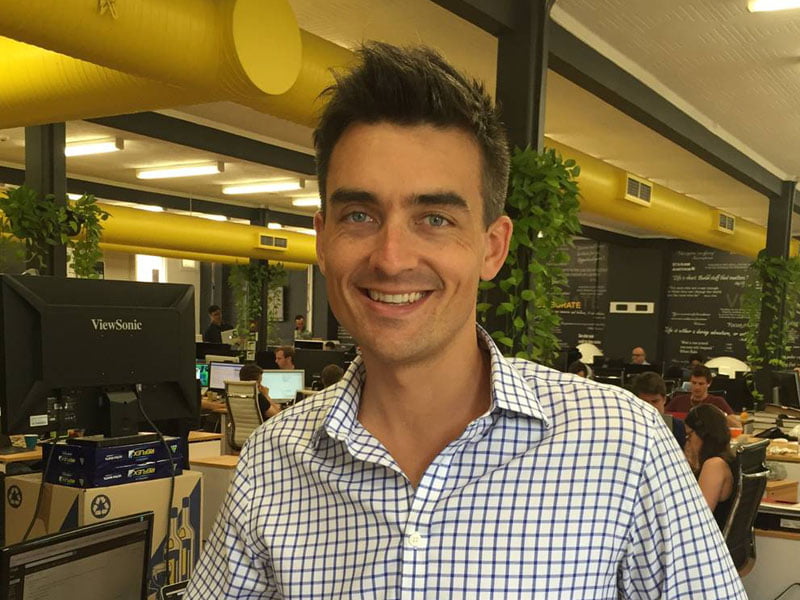The much-anticipated Crossroads report from advocacy group StartupAus has lobbed onto the internet, painting a glass-half-full picture of Australia’s entrepreneur scene while at the same time warning that the glass remains half-empty.
And this is the theme of the 2016 report. We should marvel at the tremendous progress the industry has made in recent years. And certainly that progress has been spectacular in the short time since the first Crossroads report in 2014.
But we are warned that if we do not continue to make tremendous progress, we will slip backwards relative to our global competitors for skills, capital and markets.

This kind of report is not for everyone, but if you work in the tech and innovation sector in Australia, it’s a great read. It is both exciting and confronting.
He gets lampooned for it these days, but it really is hard to argue with the Prime Minister’s “there has never been a more exciting time” epitaph (and it is surely more interesting and palatable than the other Malcolm’s “Life wasn’t meant to be easy.”)
The report makes the case for building on the start made through the National Innovation and Science Agenda through continued investment in programs to accelerate the growth and maturity of the startup landscape.
But it also points to the bigger, more complex and more controversial policy decisions that must be made, including a radical and fundamental rethinking of the way we educate our young people.
It also wants the Commonwealth to create a central innovation agency, with whole-of-government remit on innovation issues.
There are 14 recommendations contained in Crossroads. StartupAus CEO Alex McCauley says they are not listed in any order of priority.
The report’s authors have avoided being too descriptive what a policy should look like, keeping recommendations deliberately generalised to encourage further debate their specific policy shape.
The recommendations are:
- Support the establishment of innovation districts in major cities
- Create a national innovation agency
- Improve the R&D Tax Incentive by making it more favourable to startups
- Implement a national Entrepreneurs-in-Residence program
- Make targeted improvements to Employee Share Schemes legislation
- Implement and improve the Entrepreneur Visa
- Establish a program to attract promising international startups to Australia
- Extend the Digital Technologies Curriculum
- Relax restrictions on 457 visas for startups
- Implement measures to counteract high cost of living for foreign skilled workers
- Implement entrepreneurship programs in all Australian primary and secondary schools
- Implement entrepreneurship programs in all Australian universities
- Introduce a Startup Scholarship for STEM graduates
- Immerse Australian university students in Silicon Valley and other startup hubs
Mr McCauley says the report makes the case that Australia must build on the positive start made through the National Innovation and Science Agenda and continue to invest in programs that will accelerate the maturation and growth of our startup ecosystem.
“Australia is currently one of the smallest players in the race to produce global technology companies, but we have the capacity to become a much larger force in the global innovation race as long as we make a long-term, ambitious, bipartisan commitment.
In a thoughtful Foreword to the Crossroads report, industry luminary Paul Bassat confronts the reality that technology will destroy some jobs, just as it creates new ones.
This is a challenge, obviously, because there are some jobs that will disappear regardless of what Australia does.
But there is an opportunity to grab a share of the new jobs that will be created.
“At the same time as technology is creating these high value new jobs, many other jobs are disappearing. Unfortunately we have limited capability to prevent this,” Mr Bassat says.
“The complex reality is that jobs will disappear in all parts of the world but many of the new jobs being created will be concentrated in specific regions. As a result it is a critical imperative for Australia to build world class startup businesses, to ensure future-facing jobs are being created here,” he said.
The central narrative of this ripping yarn remains the same in 2016 as it did when the first report was launched in 2014. Australia remains at a Crossroads. For all of the tremendous progress of the past several years, the challenges and opportunities remain in front of us.
“Historically Australia was said to ride on the sheep’s back, and our more recent prosperity is thanks to our mineral wealth. Our future prosperity will be a function of the dedication, ingenuity and resilience of our great innovators,” Mr Bassat said.
“If Australia becomes a major player in the global technology ecosystem over the next generation then we will look back at the current period as the key inflection point.”
“At the risk of being overly simplistic, we can try to distill the key imperatives down to a few simple themes; a radical reassessment of our school and university curricula at all levels, more startup capital, and targeted government policies. If we do these things it will provide us with a great foundation.
“It is axiomatic though that the key element for future success is that we need a larger proportion of our best and brightest founding and joining startups.
“Anything we can do to encourage this outcome is incredibly valuable. This report provides credible, actionable proposals for addressing each of these areas.
We need to run to stand still sounds facile in the context of shaping innovation policy. But the reality is that we are in a race.
And we need to run.
Do you know more? Contact James Riley via Email.

